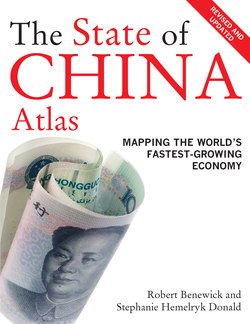Читать книгу The State of China Atlas - Robert Benewick - Страница 19
На сайте Литреса книга снята с продажи.
ОглавлениеChina’s government manages the country’s international relations both through its alliances and negotiated positions with overseas powers, and by taking into account its people’s far-reaching ambitions and passionate nationalism. As China’s overall position in the Asia–Pacific region strengthens, and it develops its economic interests in Africa and Latin America, so its relations with former world powers and the fragile economic “giants” of the USA and Europe become more volatile. The USA, in particular, retains deep suspicion of Chinese intentions, and the Chinese people are also ambivalent about the USA and its attitudes to them. Originally seen by some as a source of freedom, or simply the fount of capitalist leadership, the USA is now also recognized as a competitor that does not necessarily respect China’s government or domestic policy, and which actively fears its expansion in the Pacific region. Taiwan remains a thorn in the side of smooth relations between these two major powers. The other major issue of contention is human rights. The Chinese government attributes the discourse of human rights to Western liberalism, and individualism, and anti-Chinese aggression, whereas most in the developed West understand the concept as the cornerstone of internationals standards and democratic process. This is a bugbear of international relations and mutual comprehension for both parties.
see also page 106
Copyright © Myriad Editions Limited
20
